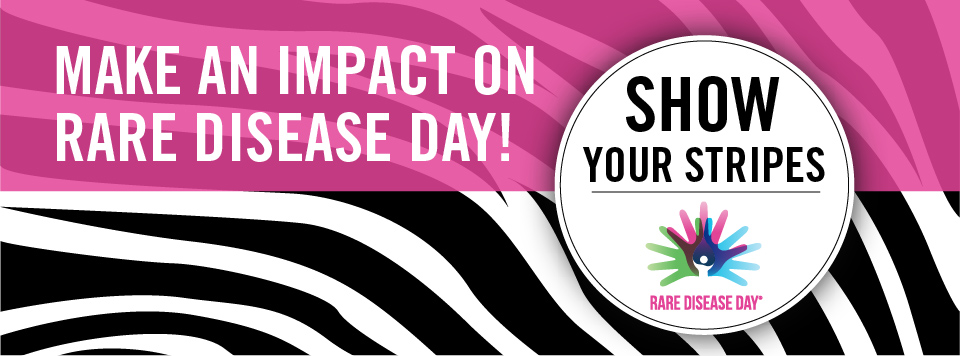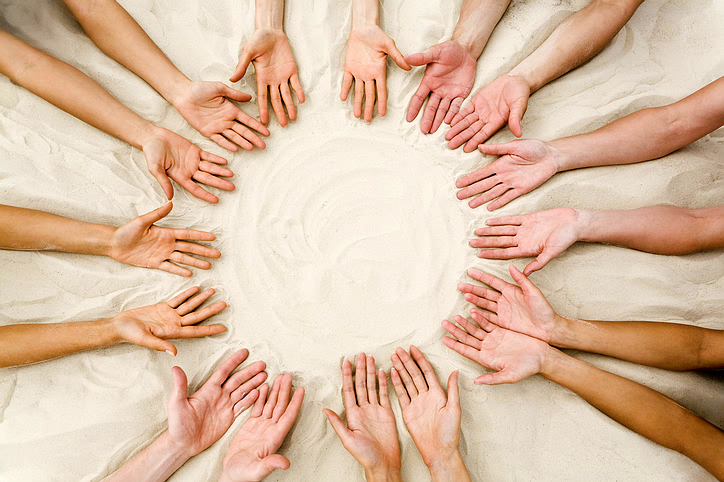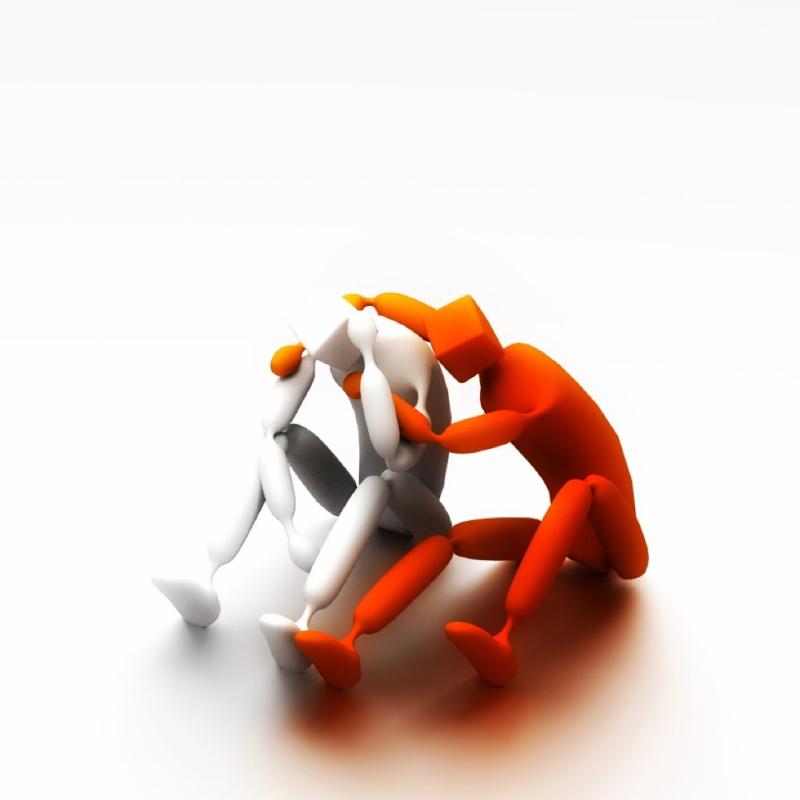" View change as the one constant in your life. Welcome it. Expect it. Anticipate it." Denis Waitle

Show Your Stripes
In the month of February 2019 our rare disease community has been dedicated to bring meaning and increased global attention to all those who suffer from over 7,000 different rare diseases. "The zebra with its distinctive stripes, is the official symbol of Rare Diseases Month in the United States." NORD is promoting specific ways that our community can show our stripes, here is the link: https://rarediseases.org/
Spotlight on a Very Rare GNEM Patient:
My name is Mel and I am a 32-year-old African-American with GNE Myopathy (GNEM). I was properly diagnosed with GNEM in January 2016. When I found out that I have GNEM, a progressively debilitating disease, I was very upset, frustrated, scared, and confused. I did not know what this disease was, although I know it was a life-long disease. I did not know how my life was going to be thereby affected, and WHY this was happening to me. I am the ONLY person in my entire family living with this condition. No one else in my family suffers from GNEM, which makes me a unicorn in my family.
My first symptoms began in my feet, “dragging or dropping” in
2012. I was falling for no reason, my feet felt just like they needed someone
to help me pick them up, just to walk! This was when I knew something was very wrong with me. First I went to a podiatrist who
did an MRI of my feet and told me that he saw a lot of atrophy in both of my feet, which
is not normal, so that I urgently needed to visit a neurologist.
As a result of suffering from GNEM, I have lost many friends because
people don’t seem to understand, or even want to understand the way this disease affects
my body and how it limits me from doing many things that my able-bodied
friends are able to do.
I sill feel very self-conscious when I am walking in public because
people stare confusedly trying to figure out why I walk the way I do or why I have to use a wheelchair to get around in a department store. Although this disease restricts some of
my activities, I still try to lead as normal a life as possible. I just don’t go anymore to clubs and lounges where many people are present. I would rather just go out to dinner, go to the movies, or spend
time with friends, or visit simple places where fewer people go.
My family’s reaction
today is much more supportive and understanding now than they were in 2012 when I didn’t
know what was going on with me. The more I spent time figuring out what was
exactly wrong with me, the more supportive my family became, once I explained to them the nature of GNEM. Now I
don’t have to fight or argue with them, for example when I say I cannot do
something, or that I need help doing a certain task, they understand and help me now.
My biggest fear is losing ALL ability to move my arms,
hands, legs, and feet on my own resources. In the
future, I hope that scientists will soon discover a cure to help ALL of us who have GNEM. We need our strength and mobility back, along with
ALL of our independence, so we can get back to living like we did before we got GNEM that took over our life and moved itself in. Here is a link to a beautiful story written about Mel:
https://marvelousgotsole.wordpress.com/2018/11/28/sole-disability/?fbclid=IwAR1-TWpOfTUPmGZwYN2FTnSwzRA9aT_zudXB_2pYfHCuY820C-Re8ipxSpY
Mel, I am very thankful that you agreed to share your story with me and graciously allowed me to post it on my blog. I can comfortably say that I have met many GNEM patients from many different ethnicities since my diagnosis, yet I have met very few patients from our African American ethnic group. Is our African American group being misdiagnosed?
https://marvelousgotsole.wordpress.com/2018/11/28/sole-disability/?fbclid=IwAR1-TWpOfTUPmGZwYN2FTnSwzRA9aT_zudXB_2pYfHCuY820C-Re8ipxSpY
 |
| Photo credit, "Marvelousgotsole's" blog |
Rare Disease Month's GNEM Events Hosted by NDF

The NDF is hosting two events for GNEM patients in support of Rare Disease month.
1. Patient Huddle, a virtual support group that focuses on Cognitive Health and Well Being which is only for GNEM patients. Please register here to join: https://curehibm.org/news-events/upcoming-events.html
2. Online Seminar Coping with Disappointment and Grief, facilitated by Dr. Gretchen. You may register here for this session: https://curehibm.org/news-events/upcoming-events.html
Other News regarding GNEM Since My Last Blog
1. The NDF held its Gala in November 2018 and which was very successful in raising $.1.7 million towards its $2.5 million challenge grant.
2. In January, the NDF's Scientific Advisory Committee (SAC) met to review proposals submitted by GNEM scientists. The SAC will submit their reviews of these proposals along with their recommendations to the NDF's board for funding, which will take place in late February, 2019.
3. The National Institutes of Health (NIH) is still planning to start its multicenter ManNAc trial this year. Please check for the recruitment status and updates at this site:https://www.genome.gov/27567243/gne-myopathy-clinical-studies-at-nih/
"Fighting for a better quality of life is a constant. You need to wake up each morning and ask yourself, how can my life be improved." Surviving and Thriving with an Invisible Chronic Illness, Ilana Jacqueline



No comments:
Post a Comment